As I read the Holy Quran, I notice that Allah (SWT) often mentions the name of the city of Mecca, (Makkah) in a number of verses (Ayats). Even before Islam began more than 1,400 years ago, the city was an important place.
So, I got curious and decided to research and to find out how many times the name of this city appears in the holy text and why.
You’ll find many Muslims claim that the name of Mecca only appears once or twice in the Holy Quran. However, this is not the case at all.
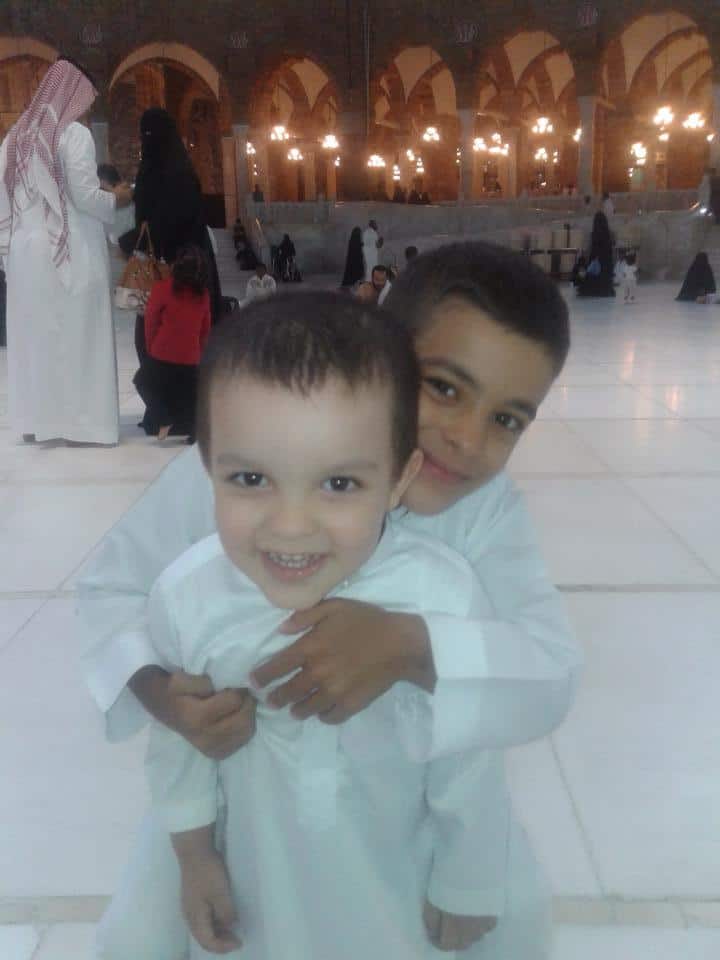
So How Many Times Does Allah (SWT) Mention The Name Of The City Of Mecca (Makkah) In The Holy Quran?
In the Holy Quran, Allah (SWT) specifically mentions the name of Mecca (Makkah) 8 times directly and more than 11 times, indirectly. Allah (SWT) calls the city Mecca, (Makkah) Bakkah, or Um Al Qura, He also uses the titles, This City and This Trustworthy Secure/City, or the Mother of Cities.
So, Allah (SWT) speaks about Mecca (Makkah) more than 20 times in various verses throughout the entire Quran. The following is a list of Quranic chapters and verses containing the name Mecca in its various forms.
In the article, I wish to explain why Allah (SWT) mentions Mecca so often and the meaning and significance of each of the various names as they appear in the Quranic chapters.
| Name Mentioned | Chapter (Surah) No | Chapter (Surah) Name | Verse No | Reason |
| 1. Mecca/Makkah | 48 | Al Fath | 24 | A Reminder |
| 2. Bakkah | 3 | Al Imran | 96 | For Worship |
| 3. Um Al Qura (Mother of All Cities) | 42 6 | Ash Shuraa An Naam | 7 92  | Warning Warning |
| 4. This City | 90 14 2 | Al Balad Ibrahim Al Baqarah | 1 & 2 35  126  | To Swear by (Witness) Sanctuary Sanctuary |
| 5. This Secure Trustworthy City | 95 | Al Teen | 3 | Sanctuary |
1. Mecca/Makkah – A Reminder
Allah (SWT) Uses The Name Mecca/Makkah As A Reminder
Who Did Allah (SWT) Remind And Why?
And He (Allah) is the One who restrained their hands from you and your hands from them in the valley of Makkah after He (Allah) had let you prevail over them, and Allah is watchful over what you do.
Al Fath (The Victory) 48:24
In Surah Al Fath 24, Allah (SWT) is reminding Prophet Mohammed (SAW) and in effect, all Muslims throughout time.
What Was The Reminder?
It was the year 628 AD, (6AH) in Mecca. In the verse, Allah (SWT) is referring to the fact that he (Allah) had successfully held back the Quraish tribe when they wanted to attack Prophet Mohammed (SAW) and the Muslim pilgrims arriving from Madinah to Mecca for Umrah for the very first time.
Likewise in the same verse, Allah (SWT) reminds Muslims how he (Allah) had also restrained the hearts of the advancing Muslim pilgrims from any retaliation to the terrible provocations of the Quraish tribesmen as they were approaching the city.
The Truce of Hudaibiyah – Historical Context
– Historical Context
Six years before in 622 AD, the Quraish (disbelieving tribes) had banned any Muslim in Mecca or anywhere else from making Hajj, Umrah, or from entering the Haram mosque.
However, six years later in 628 AD, Prophet Mohammed (SAW) and the Madinah Muslims decided to do just that.
They traveled the long 600 km (6 days + walk) south to Mecca with the express intention of performing Umrah (the lesser pilgrimage).
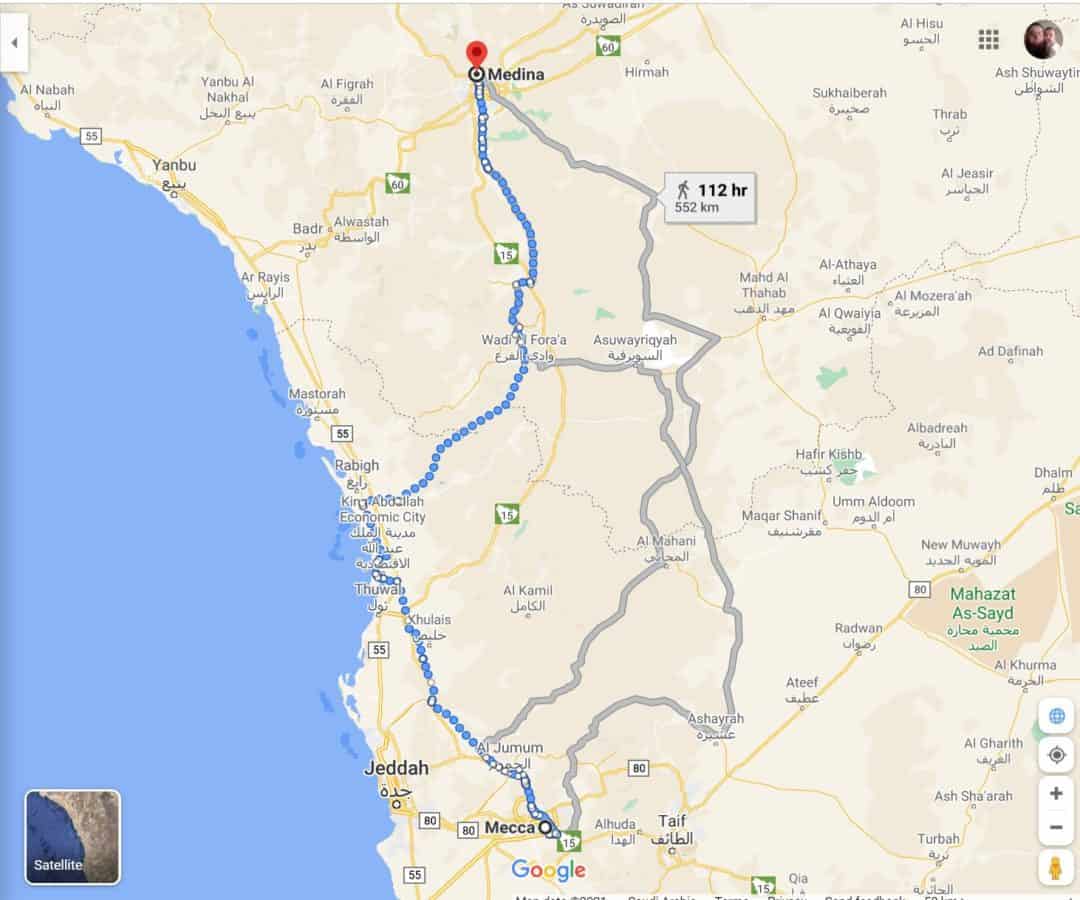
The intention to make this very risky Umrah was based on Prophet Mohammed’s dream (SAW) in which he saw that he and his companions had completed Umrah in Mecca.
Actually, the dream had been inspired by Allah (SWT). You can read about the vision (dream) in Surah Al Fath 27 in which Allah (SWT) predicts the event. (Below)
in which Allah (SWT) predicts the event. (Below)
To Carry Arms or Not?
The Muslims knew that if they had tried to enter Mecca carrying weapons (swords, etc) to protect themselves, the Quraish leaders would have regarded this as an act of open aggression and would have fought them to the death.
However, if they had left their weapons in Madinah, the Quraish tribes would likely have exploited this weakness and attacked and killed them anyway.
The Long Road To Mecca
However, Prophet Mohammed (SAW) felt emboldened by his vision . He and 1,400 companions made their way from Madinah to Mecca in the Islamic month of Dhul Al Qaidah in the year 628 AD, (2 AH).
. He and 1,400 companions made their way from Madinah to Mecca in the Islamic month of Dhul Al Qaidah in the year 628 AD, (2 AH).
With them, they took 70 sacrificial, collared camels (as a sign of peace). They carried one sword each, and no other weapons.
On the way to Umrah, they chanted the Talbeyah, Labbaik Allah, Huma Labaik.
The Quraish- Stuck Between a Rock & A High Place
With the impending approach of the Prophet and Muslims, the disbelieving Quraishi tribe was in a dilemma. One year previously in 627 AD, 5 AH, they (10,000 fighters) had attacked Muslims in Madinah in the famous 27 days, Battle of the Trench.
Read the details of this battle by clicking insidesaudi.com’s, Visiting The Battle of The Trenches (Khandaq) .
.
They were puzzled why, so soon after the battle, an unarmed caravan would approach Mecca which was then under control by their mortal enemies the Quraish.
They knew that if the Quraish tribesmen had attacked the advancing Muslims during the month of Dhuhul Al Qai’dah (war forbidden during this month) as they entered Mecca and had prevented them from doing Umrah, the act would have signaled to the rest of Arabia their monopolization of the Kaaba and would have angered other tribes.
However, they also understood that if they had allowed the Muslim caravan to enter Mecca unimpeded, this would have signaled that they feared Prophet Mohammed (SAW) and would have proven to be a loss of power and reputation.
The Quraish Provoke Prophet Mohammed (SAW) And The Muslims To Fight Them
The Muslim caravan reached the town of Usfan, 104 km north of Mecca.
104 km north of Mecca.
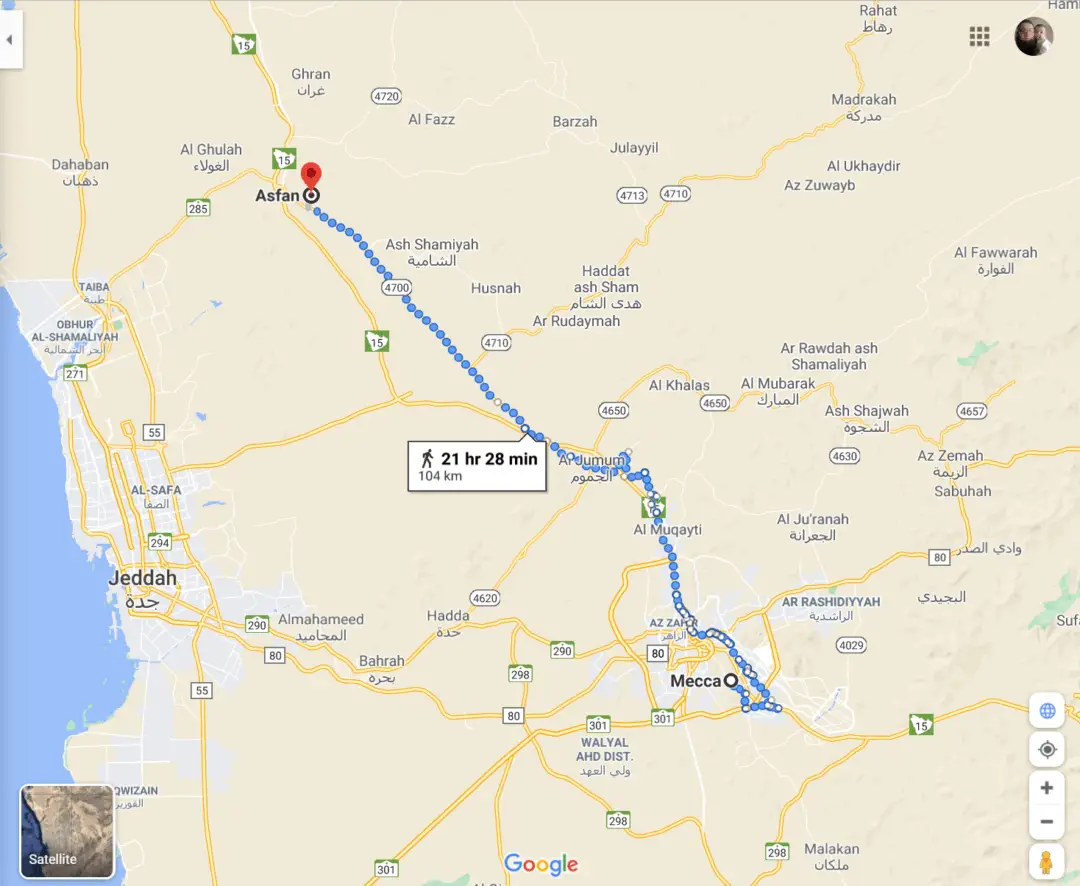
Here, the Quraish leaders sent Khalid Bin Walid  and two hundred cavalrymen to provoke the Prophet Mohammed (SAW) and the Muslims into a fight and to use their defensive response to show that in reality, Muslim intentions were belligerent and therefore a justification for war.
and two hundred cavalrymen to provoke the Prophet Mohammed (SAW) and the Muslims into a fight and to use their defensive response to show that in reality, Muslim intentions were belligerent and therefore a justification for war.
However, Prophet Mohammed (SAW) avoided the Quraish cavalrymen by taking a rocky mountain route to Mecca and the attack failed.
Along the way, the Quraish used other tribe members to try to dissuade the Muslims from entering the city.
However, all this failed, too.
After speaking with Prophet Mohammed (SAW) to convince him to go back to Madinah, these other tribesmen understood that his intention for a peaceful Umrah was a true one.
The Quraish Repeatedly Harass The Muslim Caravan
However, the Quraish did not relent. They sent more men to attack the Muslim caravan in an effort to provoke a war, and on both occasions, the companions caught and later released them.
One such attack was at Tan’im. Here, 80 Quraishi men ambushed the Muslims at Fajr prayer time but were captured and returned.
Today, Tan’im is the location of both Masjid Aisha and Miqat for Mecca. Each year, thousands of Muslims visit the place to make preparations for Umrah.
See more details about Quraish provocations on the advancing Madinah Muslims by clicking here.
Later, at Hudaibiyyah , Prophet Mohammed (SAW) sent Uthman Bin Affan
, Prophet Mohammed (SAW) sent Uthman Bin Affan , (RA) the Prophet’s son-in-law to the Quraish as his envoy to negotiate a peace agreement.
, (RA) the Prophet’s son-in-law to the Quraish as his envoy to negotiate a peace agreement.
However, they responded by holding him captive-a tactical move.
After Uthman’s (RA) capture, rumors spread that the Quraish had killed him.
They turned out to be false.
This though enraged the Muslims who now, out of a feeling of revenge, wanted to battle with their enemies as they entered the city.
The Pledge (Bayaa) Of Ridwan/The Tree
They were dedicated men and at Al Hudabiyyah , (north of Mecca city) and they took a pledge with Prophet Mohammed (SWT) to fight to the death for the sake of Allah (SWT).
, (north of Mecca city) and they took a pledge with Prophet Mohammed (SWT) to fight to the death for the sake of Allah (SWT).
They each placed one hand on top of Prophet Mohammed’s (SAW) hand to make the pledge.
This famous pledge became known as Pledge (Bayaa) of Ridwan or Pledge of the Tree . The companions or Sahabah became known as the People of the Tree. Allah (SWT) was very pleased and commemorates this act in the following verse.
. The companions or Sahabah became known as the People of the Tree. Allah (SWT) was very pleased and commemorates this act in the following verse.
Certainly, Allah was well pleased with the believers when they swore allegiance to you under the tree, and He knew what was in their hearts, so He sent down tranquility on them and rewarded them with a near victory.
Surah Al Fath 48:18
In the end, Uthman (RA) did return to the Muslim caravan with him Suhail Bin Amr  and a deputation from the Quraish to negotiate a peace treaty.
and a deputation from the Quraish to negotiate a peace treaty.
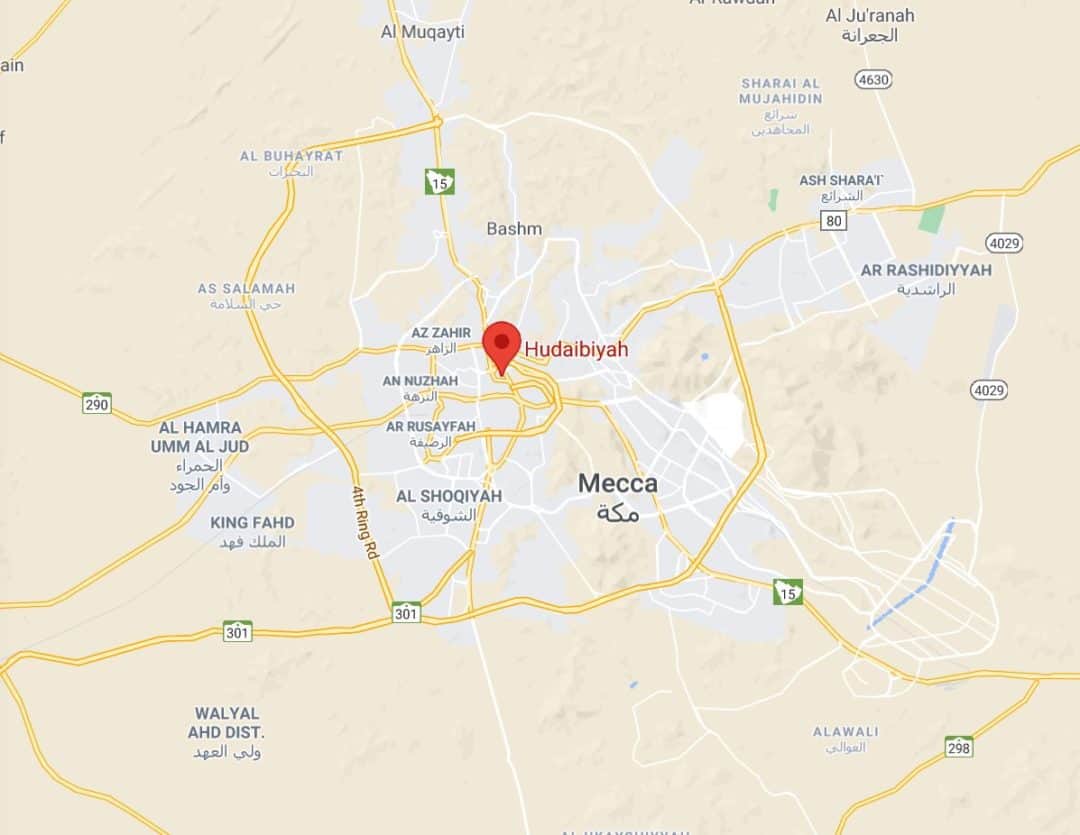
The Quraish and Prophet Mohammed (SWT) Agree To A Treaty At Hudaibiyyah
That year, in 628 AD, (6 AH) the Quraish tribe wanted to stop Prophet Mohammed (SAW) and the Muslim caravan from entering Mecca at all costs.
To save face, they insisted that the Muslims must leave Mecca, but that they could return for Umrah the following year in 629 AD.
The sagacious Prophet Mohammed (SAW) agreed to the proposal to the outrage of the companions (Sahaba).
They felt the terms humiliated them, and they could not understand how the Prophet (SAW) was capable of agreeing to any of them at all.
The Treaty Of Al Hudaibiyyah- The Terms
- No War or Conflict Permitted For Ten Years
- Quraish defectors to the Muslims must be returned
- Muslim defectors to the Quraish cannot be returned
- Other Arab tribes permitted to join sides with Muslims or the Quraish
- Muslims must go back to Madinah in 628 AD (6AH)
- Muslims permitted to perform Umrah in 629 AD (7AH)
- Muslims can only stay in Mecca 3 days for Umrah in 629 AD (7AH)
- Muslims can only carry one sheathed sword
The Companions Outraged-Al Hudabiyyah A Blessing In Disguise
The companions hotly opposed the terms and were very displeased with Prophet Mohammed (SAW). However, they could not foresee the benefits as far as he (SAW) was able.
- It was the first time the sovereignty of the Islamic state had been recognized.
- By allowing Umrah for the first time to The House of Allah in 629 AD, Islam had also been recognized.
- The 10-year war ban gave space for Islam to spread far and wide. Many people converted.
- The Muslim strength increased in number and in 631 AD, 10,000 strong Muslims took Mecca.
- Islamic rule, the Sharia Law, and civilization flourished thereafter.
- Prophet Mohammed (SAW) soon conquered the north, central Arabia, and the rest of Arabia.
- Prophet Mohammed (SAW) returned defectors such as Abu Basir
 who escaped and set up raiding parties with 70 men to destroy the Quraish trading caravans.
who escaped and set up raiding parties with 70 men to destroy the Quraish trading caravans.
2. Bakkah (Mecca)- For Worship
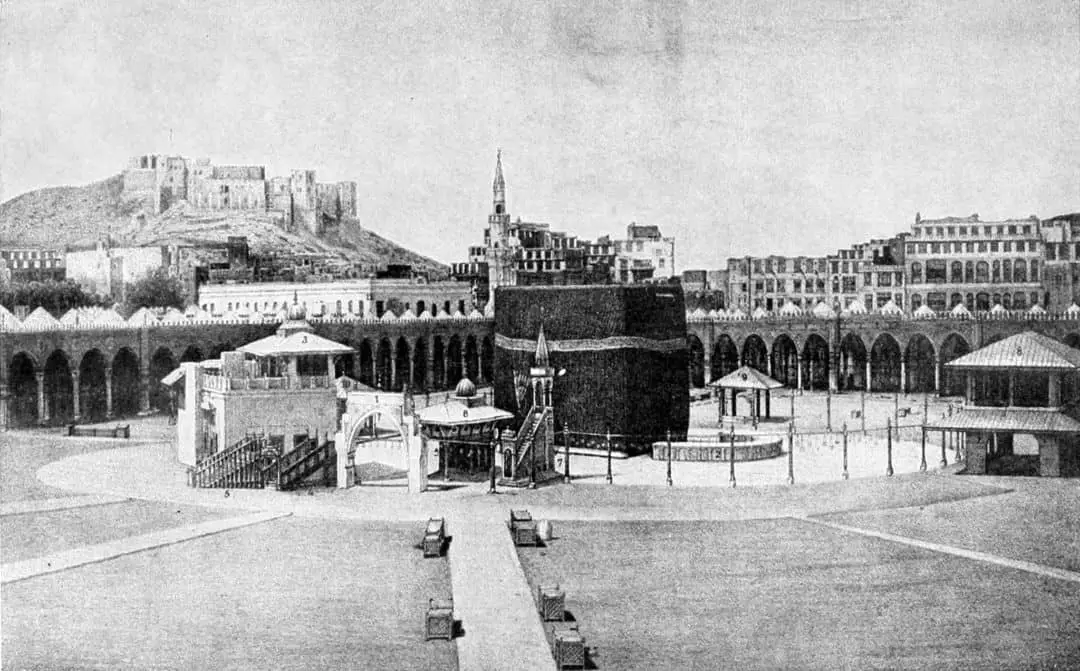
Allah (SWT) Uses The Name Bakkah As A Place Of Worship
What Is The Place Of Worship, For Whom And Why?
Surely the first House of worship established for humanity is the one at Bakkah (Mecca)—a blessed sanctuary and a center of guidance for all people in the world.
Surah Al Imran 3:96
What Was/Is The Place Of Worship?
In Surah Imran 3:96 , Allah (SWT) is addressing Muslims directly. In the verse, Allah (SWT) stresses that Masjid Al Haram (The Holy Mosque) was the first place ever in the history of humanity to be dedicated to the worship of God, Allah (SWT).
, Allah (SWT) is addressing Muslims directly. In the verse, Allah (SWT) stresses that Masjid Al Haram (The Holy Mosque) was the first place ever in the history of humanity to be dedicated to the worship of God, Allah (SWT).
It is also a place for the worship of God (Allah) for all mankind.
For centuries until 624 AD or 2 AH, Jews and the people of Tawheed (oneness), and later the Muslims prayed in the direction of Jerusalem.
However, over the centuries, the Jews had corrupted the notion of oneness of Allah by allowing insignificant legalistic issues, to dominate, debate and polytheism to enter their religion.
So, in the Islamic month of Sha’ban of that year, (624 AD or 2 AH) Allah (SWT) ordered Prophet Mohammed (SWT) and Muslims to use the Holy Mosque in Mecca as the new direction for prayer.
The Revelation For Muslims To Face Mecca In Prayer
In Surah Al-Baqarah, 2:144 Allah (SWT) turns Muslims away from Jerusalem (towards the heavens) and in the direction of Masjid Al Haram.
Allah (SWT) turns Muslims away from Jerusalem (towards the heavens) and in the direction of Masjid Al Haram.
Allah (SWT) revealed this verse to Prophet Mohammed (SAW) as he stood for Dhuhr prayer in the house of Bishr Al Bara’ab in Madinah where he had been invited to have lunch.
He (SAW) had just completed two Rakahs when the revelation came to him. In the third Raqah, he turned to face Mecca and everyone else soon followed his lead.
came to him. In the third Raqah, he turned to face Mecca and everyone else soon followed his lead.
People in Madinah publically announced the news of the change. People immediately turned their faces towards the Kaaba.
One day later, the news reached the tribe of Banu Salamah  who immediately did the same.
who immediately did the same.
Establishing The First Place of Prayer-Historical Context
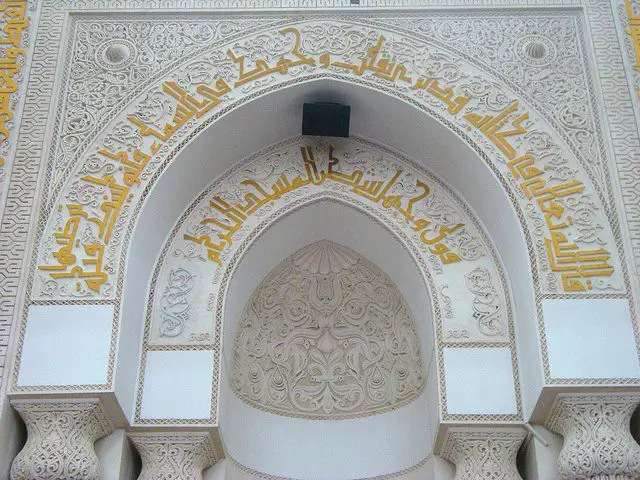
When Allah (SWT) revealed the new direction of prayer , the Jews hotly contested the decision.
, the Jews hotly contested the decision.
The change meant not only a stand against the Jewish tradition but a complete physical reversal and a repositioning of the Imam (prayer leader) and the worshipers themselves.
From the city of Medinah, Jerusalem lies to the north and Mecca in the opposite direction to the south.
For the Imam, (prayer leader), to get the new direction of prayer he had to turn completely about-face AND to change his standing position entirely among the worshipers in the congregation.
Now, the new standing position for the Imam changed to the back of the room where the last row of the congregation had formerly stood. The back of the prayer room became the new position at the front.
Likewise, the new last row of worshipers now moved to the Imam’s old position formerly at the front of the prayer room.
The former front of the prayer room became the new rear position.
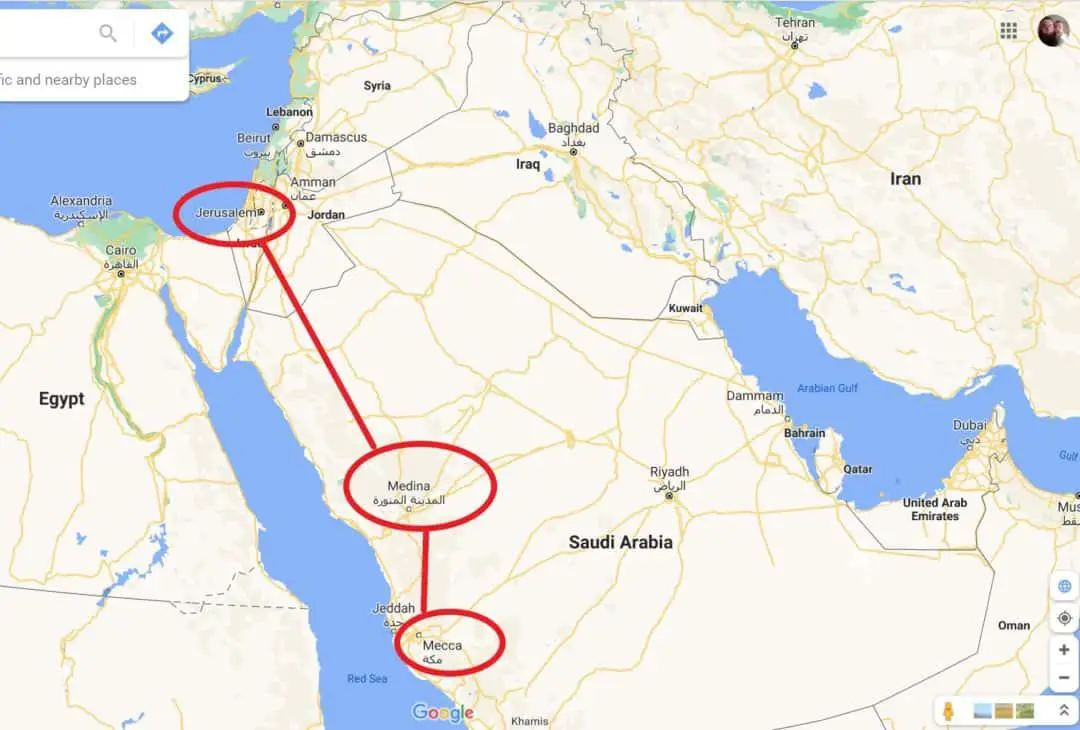
The Direction of Prayer-According To Christians and Jews
Indeed, We (Allah) see you, oh, Prophet turning your face towards heaven. Now, We (Allah) will make you turn towards a direction of prayer that will please you.
So turn your face towards the Sacred Mosque in Mecca—wherever you are, turn your faces towards it.
Surah Al Baqarah 2:144
Until Allah (SWT) revealed the injunction to pray in the direction of the Kaaba, (above) the Jews insisted that Jerusalem was the proper direction of prayer for all people of the Abrahamic faiths.
The Christians also maintained that Jerusalem was their established prayer direction because their Bible claimed that Prophet Solomon (AS) built the House of the Lord some four and half centuries after Moses (AS) and the Israelites had fled the land of Egypt.
some four and half centuries after Moses (AS) and the Israelites had fled the land of Egypt.
It was a time when all the people who worshiped the one true God faced Jerusalem to pray.
to pray.
However, the reality is that Prophet Abraham (SAW) first built the Kaaba in Mecca nearly 9 centuries earlier than the time of Moses.
The Kaaba as a place of worship precedes the Temple at Jerusalem by centuries and the fact that Masjid Al Haram in Mecca, Saudi Arabia was the original true place of worship for all faiths has been well established by many scholars over the centuries.
3. Mecca-Um Al Qura (Mother of Cities)-A Warning
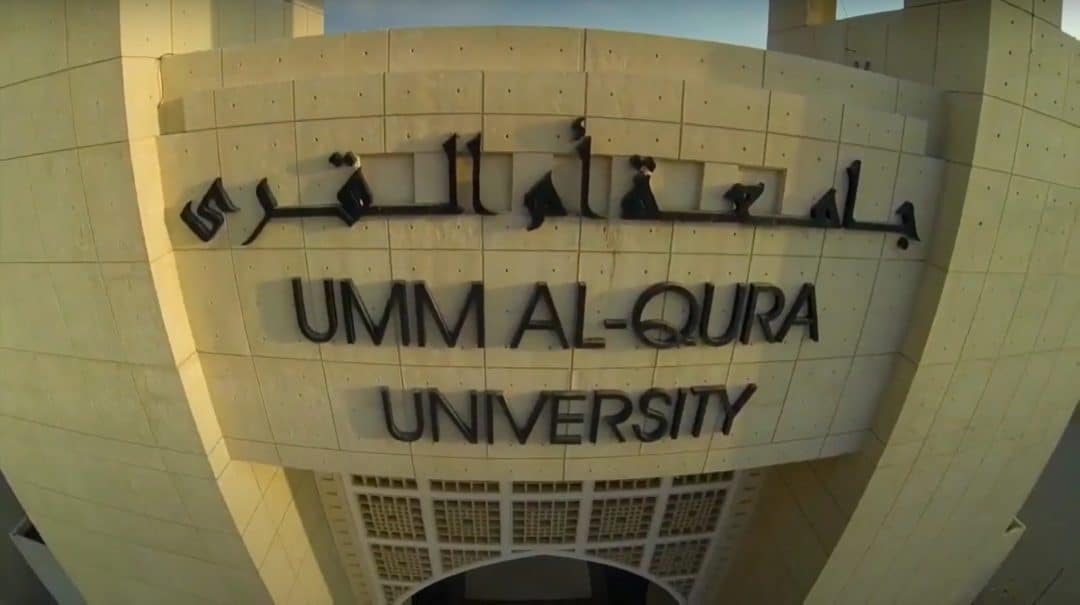
Allah (SWT) Uses The Name Um Al Qura (Mecca) As A Warning
A: What And For Whom Is The Warning Intended?
So, We have sent by inspiration to you, an Arabic Qur’an: that you may warn the Mother of Cities (Mecca) and all around her,- and warn (them) of the Day of Assembly, of which there is no doubt: (when) some will be in the Garden, and some in the Blazing Fire.
Surah Ash Shuraa 42:7
In this surah Ash Shuraa 42:7 Allah (SWT) is specifically addressing Prophet Mohammed (SAW). In the verse, Allah (SWT) tells the Prophet to warn the people of Mecca, which he (Allah) names Um Al Qura.
Allah (SWT) is specifically addressing Prophet Mohammed (SAW). In the verse, Allah (SWT) tells the Prophet to warn the people of Mecca, which he (Allah) names Um Al Qura.
In English, the name means Mother of Villages/Towns or Cities. The name Um Al Qura connotes a timeless city and a blessed source of inspiration.
The timeless blessing is that Mecca was the first place ever in the history of humanity to be dedicated to the worship of God, Allah (SWT) and it was where Allah (SWT) revealed the Holy Quran to his last Prophet Mohammed (SAW).
What Was The Warning?
The warning relates to the certainty of the Day of Judgement in which mankind will be gathered together to make an account for their deeds in this (human) life.
relates to the certainty of the Day of Judgement in which mankind will be gathered together to make an account for their deeds in this (human) life.
As the verse ends, Allah (SWT) assures readers that after this gathering some people who attended the gathering will be in heaven, and whilst others will be in hellfire.
Allah (SWT) orders Prophet Mohammed (SAW) to warn Muslims (& all mankind) by saying that he (Allah) sent the Holy Quran in the Arabic language to inspire the people of Mecca, and those living around the city, and by extension all Muslims everywhere in all cities and in all time periods.
The warning is for us NOT to take refuge nor to seek the protection of other human beings or their invented ways and man-made religions.
Human beings should only take protection in Allah (SWT) alone.
In reality, human beings have no power. However, Allah breathes life into dead things. He (Allah) has power and dominion over life and all things. (Ash Shuraa 42:8 )
)
B: What And For Whom Is The Warning Intended?-Sura Al An’am
And this is a Book which We have sent down, bringing blessings, and confirming (the revelations) which came before it: that you may warn the mother of cities and all around her. Those who believe in the Hereafter believe in this (Book), and they are constant in guarding their prayers.
Surah Al Anam 6:92
In this surah Al An’am 6:92, Allah (SWT) exhorts Prophet Mohammed (SAW) to warn the believers and the tribes (Quraish) hotly opposing the revelations and his prophethood.
In the verse, Allah (SWT) tells the Prophet to warn the people of Mecca, which he (Allah) names Um Al Qura, the people living close to Mecca and all Muslims everywhere in all cities and in all time periods.
What Was The Warning?
The warning is Allah’s command to mankind to accept that the Holy Quran is a blessing to the people who believe in the afterlife and who maintain their 5 daily prayers.
is Allah’s command to mankind to accept that the Holy Quran is a blessing to the people who believe in the afterlife and who maintain their 5 daily prayers.
The revelations which comprise the Holy Quran corroborate and confirm the truths revealed in the previous revelations to the people of Abraham and the Jews.
Allah (SWT) specifically addresses this verse to these people, even to the disbelieving Quraish who regarded themselves as descendants of Prophet Ibrahim (AS).
4. This City (Mecca)-To Witness & A Sanctuary
Allah (SWT) Calls ´This City´ (Mecca) To Witness
A: To What Is This City (Mecca) A Witness? – Surah Al Balad, 1 & 2
(No!) I (Allah) do call to witness this City. And you (Prophet Mohammed) are a freeman of this City.
Surah Al Balad 90-1 & 2
In these two very short verses , Allah (SWT) swears an oath by This City (Mecca). He (Allah) addresses the people of Mecca and calls their attention to the fact that the city is holy and sanctified. The people living there are safe and are in a sanctuary.
, Allah (SWT) swears an oath by This City (Mecca). He (Allah) addresses the people of Mecca and calls their attention to the fact that the city is holy and sanctified. The people living there are safe and are in a sanctuary.
What Was The City Witness To?
Allah (SWT) begins verse 1 with an emphatic, no!
with an emphatic, no!
This ‘no’ is a refutation leveled against the Quraish, the polytheist tribe who had tortured and oppressed Muslims for years before Prophet Mohammed (SAW) and the Muslims finally conquered Mecca on January 11th, 630 AD.
Allah (SWT) calls This City or sanctuary to witness that Prophet Mohammed (SAW) and the Muslims are now free to be there.
They also have permission to fight in the city for one hour a day.
On this matter, Prophet Mohammed (SAW) is quoted to have said of it:
Verily, Allah made This City sacred on the Day that He created the heavens and the earth. Therefore, it is sacred by the sanctity of Allah until the Day of Judgement.
Its trees should not be uprooted, and its bushes and grasses should not be removed.
And it was only made lawful for me (to fight in) for one hour of a day. Today, its sanctity has been restored just as it was sacred yesterday.
So, let the one who is present inform those who are absent.
Hadith On Mecca-Prophet Mohammed (SAW)
B: How Is This City (Mecca) A Sanctuary?- Surah Ibrahim, 35
Remember Abraham said: “O my Lord! make This City one of peace and security: and preserve me and my sons from worshiping idols.”
Surah Ibrahim 35
In Surah Ibrahim 35 , Allah (SWT) directly addresses the Quraish polytheists of Mecca. He (Allah) reminds them of the Prophet Ibrahim’s plea to make Mecca a place of peace and security.
, Allah (SWT) directly addresses the Quraish polytheists of Mecca. He (Allah) reminds them of the Prophet Ibrahim’s plea to make Mecca a place of peace and security.
What Is The Sanctuary?
The sanctuary is the Masjid Al Haram, a place to worship Allah (SWT) alone and the city that Prophet Ibrahim (AS) set up when he left his wife Hajar and his son Ismael there.
Allah (SWT) reminds the Quraish people that Ibrahim (AS) had disowned those people who worshiped other deities other than Allah (SWT) and to keep him (Ibrahim) away from praying to idols.
C: How Is This City (Mecca) A Sanctuary?-Surah Al Baqarah, 126
And remember when Ibrahim said, “My Lord, make This City (Mecca) secure and provide fruits to its people—those among them who believe in Allah and the Last Day.”
He answered, “As for those who disbelieve, I will let them enjoy themselves for a little while, then I will condemn them to the torment of the Fire. What an evil destination!”
Surah Al Baqarah 126
In this surah, Al Baqarah 126, Allah (SWT) once again reminds the Quraish polytheists of a similar plea by Prophet Ibrahim (AS) who had begged Allah (SWT) to secure This City, (Mecca) bless it, and to furnish the believers with provisions.
Allah (SWT) once again reminds the Quraish polytheists of a similar plea by Prophet Ibrahim (AS) who had begged Allah (SWT) to secure This City, (Mecca) bless it, and to furnish the believers with provisions.
Commentators understand this plea in the context of Allah’s command to purify the Haram Mosque from filth and impurities, including the worship of false idols, promiscuity, and sins.
to purify the Haram Mosque from filth and impurities, including the worship of false idols, promiscuity, and sins.
5. This City (Mecca)-Secure & Trustworthy
Allah (SWT) Calls ´This City´ (Mecca) A Secure And Trustworthy One
In What Ways Is This City (Mecca) Secure And Trustworthy?- Surah Al Teen, 1-3
By the fig and the olive (Palestine)
And by Mount Sinai (Egypt)
And by this secure city (Mecca)
Indeed, We created humans in the best form.
Surah Al Teen 1-4
In this surah Al Teen 1-4 , Allah (SWT) swears an oath to
, Allah (SWT) swears an oath to
- The fig/olive trees
- Mount Sinai
- Mecca.
What Is The Secure and Trustworthy?
The first place is Palestine and the land where figs and olives flourish and where Prophet Jesus (AS) preached. The second is Mount Sinai (Egypt) where Allah (SWT) interacted with Moses (AS). The third is the safe and secure city of Mecca-a place of sanctuary for the people who enter it and where Prophet Mohammed (SAW) was born and became a messenger of Allah (SWT).
References And Useful Sites
- The Pledge of The Tree– Wikipedia
- Surah Al Imran 3:92-97
 -Islamic Studies Info
-Islamic Studies Info - Tabaaqat-Vol 1 page 241 -Ibn Saad
- Understanding Surah Al Baqarah 144
 – Islamic Studies Info
– Islamic Studies Info - Towards Understanding the Quran (Ash Shuraa)
 – Islamic Studies Info
– Islamic Studies Info - Towards Understanding the Quran (Al An’am)– Islamic Studies Info
- Swearing By The Sanctity Of Mecca Surah (Al Balad)
 -Tafseer Ibn Kathir
-Tafseer Ibn Kathir - Quran Tafseer Ibn Kathir (Ibrahim)
 -alim.org
-alim.org - Towards Understanding the Quran (Surah Ibrahim)
 -Islamic Studies Info
-Islamic Studies Info - Tafseer Quran (Surah Al Baqarah)
 – alim.org
– alim.org - Towards Understanding the Quran (Surah Al-Teen)
 -Islamic Studies Info
-Islamic Studies Info
